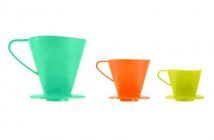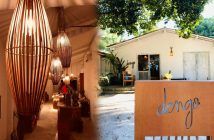Building of a factory to come on stream next year, to produce premium coffee plastic capsules with 100% Brazilian blends is among the plans.
Mocoffee, Brazilian and Portuguese multinational company that produces premium coffee capsules has just announced the start of construction of a factory in Brazil, so far without definition of location and investments. “At first, the plant would be installed in Espírito Santo, however, with the change in shareholding control, we are reviewing our entire strategic plan. We expect to conclude it in the next 60 to 90 days and then we will have the definition, explains Mocoffee CEO Ricardo Flores.
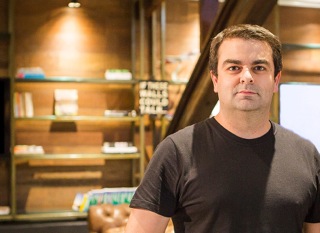
(Ricardo Flores, Mocoffee’s CEO)
The company’s intention is to have premium coffees encapsulated in Brazil. Today, its whole production is finished in Switzerland, Italy and Australia, in partner factories. But the idea is to have Brazilian blends encapsulated here.
Last week, the company announced wine.com group leave from its controlling interest. Till then, they held 50% of Mocoffee along with Tristão, owner of the remaining 50%. Flores explains that the building of the factory in Brazil is one of the reasons why wine.com left the company. “Our focus is that Mocoffee must promote its backward integration as soon as possible in Brazil and, with that, wine.com decided to leave the society to invest exclusively in the wine segment”, he tells. Mocoffee was founded in 1991 by Swiss Eric Favre, inventor of coffees in capsules for domestic use.
“We had to postpone our entry in Brazil due to the adverse economic scenario. But, as chief coffee producer market worldwide and second consumer market, we can’t stay out much longer. All large coffee capsule producers in Brazil are talking to us”, he tells.
Mocoffee machines are finished in China, and most internal equipment is produced in Germany and China, to be imported to Brazil.
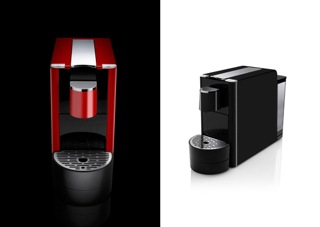
(Mocoffee’s coffee machines)
100% Brazilian coffees’ blends
The company has made large investments in the international sale of Brazilian blends from Minas Gerais, Espírito Santo and South of Bahia producer regions. “Our intention is to focus only on Brazilian gourmet coffee blends. Europeans and Americans consider difficult to make the blends they appreciate using only Brazilian coffees, without mixing them with other coffees from other producer countries like Colombia, Ethiopia, etc.
But we don’t agree. With the dedicated work of roasting and selection, it is possible to make any drink to satisfy the foreigner. And we are doing that already. Today we count on 12 100% Brazilian coffee blends, and we are now launching in the USA a series with only Brazilian coffees”, explains the CEO.
Domestic market
“To date, in Brazil, the concern has been to sell premium and special coffees to external markets. The over 200 million Brazilians eager to know and consume better coffees were forgotten. There was no intention to create a gourmet coffee consumer market in Brazil, least of all a special coffee consumer market”, he adds.
But this reality is changing in the last years, and the knowledge on Brazilian special coffees by professionals like Isabela Raposeiras, Mariano Martins and Hugo Wolff, to mention only some examples, has assisted the consumer to increasingly seek these products. From my point of view, the Brazilian is ready to invest more in coffee quality. On the other hand, producers are beginning to understand that they can make money by selling to the domestic market as well. And that is good for all, including Mocoffee”, he says.
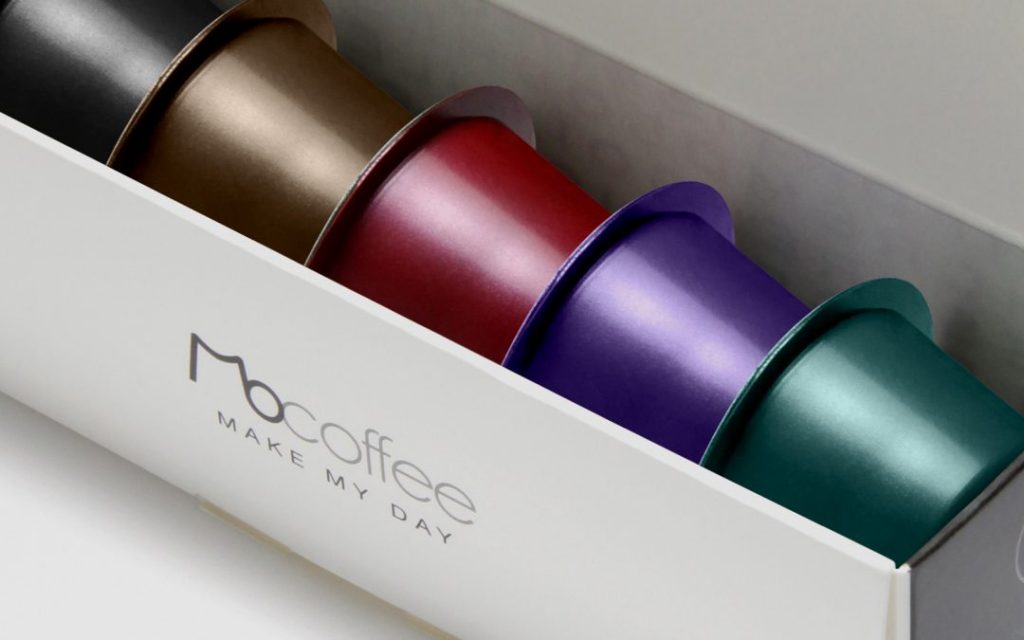
(Mocoffee’s coffee capsules: soon in Brazil!)
The operation to sell capsules is expected to start next year, online first. In the business model still under approval process, Mocoffee is also considering the possibility of opening own stores to sell its premium coffee capsules as well as supermarket chains. The company expects to trade 30 to 40 million capsules in the first year of operation in Brazil.
Recycling and reverse logistics
One of its differentials is that the capsules are made of plastic, without aluminum. “We are making in Zurich a biopolymer project (vegetal plastic, from a palm tree, compound formed by the leaf of a palm tree species and a synthetic matter called EVOH, to create an oxygen barrier). The project has been well developed, but it will still take a year. In this field, everybody is learning. We are investing to improve the system”, explains Flores.
Australia is the chief market
Today Mocoffee operates in the market of machine production and premium coffee capsules, trading in 20 countries and is one of the market leaders in Switzerland and Australia, operating in Singapore, Malaysia and Austria as well.
Mocoffee produces 200 million capsules a year. Only Australia consumes around 80 million capsules a year.
In the USA, due to the difficulties to adapt coffee flavor to Americans’ taste, which was a challenge, much tougher than expected, around 27 to 30 million capsules are sold every year. However, it only operates in Florida State, within a very specific market, that of maritime cruises, installing machines in suites of ships from companies like Carnival, Royal Caribbean, MSC. In March 2018, the online operations will start, with delivery across the American territory.
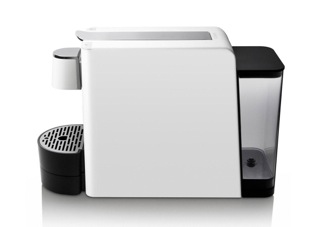
(Mocoffee’s espresso machine)
Operation in Portugal
Mocoffee started its operations in Portugal last September. Till then, the company operated exclusively in Switzerland. The big news in its operation in the country is that they are launching in April or May 2018 a solid partnership with a supermarket chain. “The project is very important to us, but I can’t give you more details, since it is still confidential”, he explains.
Special coffee scene in Portugal
Portugal practically holds the monopoly, with only two or three companies controlling the coffee market. That is why it was very difficult to introduce special coffees in Portugal. But the scenario is changing. “We have our Isabela Raposeiras, her name is Sandra Azevedo. Like Raposeiras, she has a school, Academia do Café, in Lisbon, next to Benfica Stadium. Like the Brazilian pioneer barista, Sandra has trained many baristas and roasters and these professionals are already opening small roasting shops and coffee shops”, he says. In a near future, Grão Especial will publish a big report on special coffees in Portugal.
Special coffees in capsules?
“With regard to recycling, there are two important aspects: the first concerns legislation. As far as I know, the Brazilian legislation is changing, there is a bill already and producers will be obliged to recycle and adopt reverse logistics”, tells the CEO. In countries where legislation is enforced, there are specialized companies that do this job of collection and treatment of capsules.
There is an important information about our capsule: it contains less than a gram of plastic. Dolce Gustto’s capsules contains 14.6 gram of plastic. It takes 15 of our capsules to form the same waste as that of the competitor. And most competitors’ capsules contain more plastic than ours.
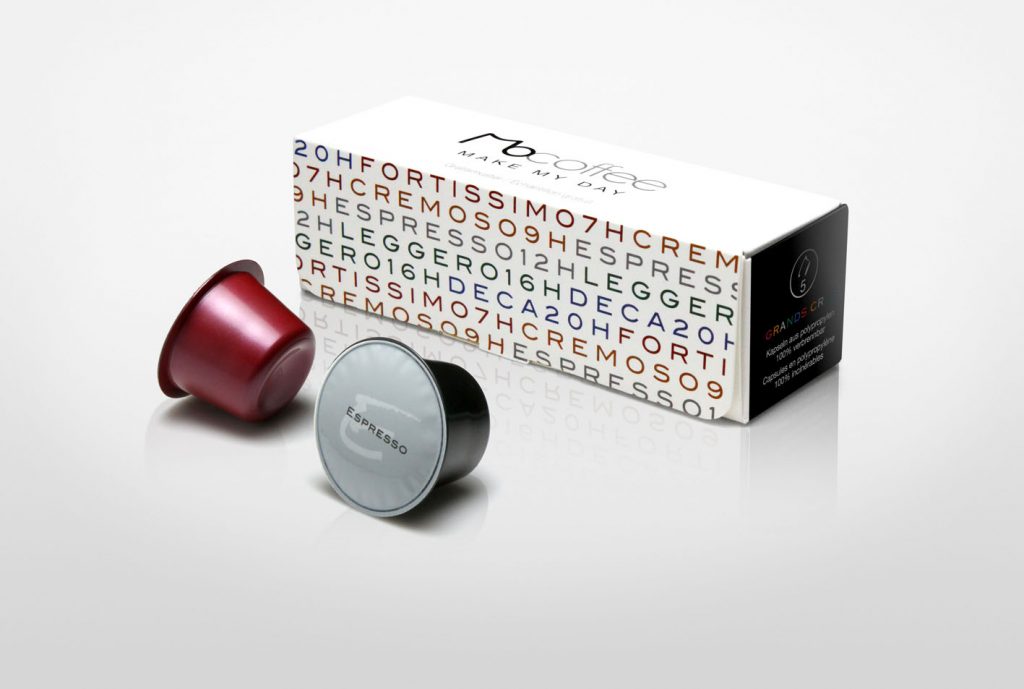
(Mocoffee’s coffee capsules contain less than one gram of plastic)
In the universe of special coffees, many professionals don’t even consider the idea of using capsule, preferring classical preparation methods like espresso, French press, globinho, etc. But what about consumers? What do they think?
“I agree that capsule coffee is not the best method for drinking a special coffee when you understand the subject and have a machine at home to prepare the espresso. I know how to grind my grain, how to conserve my grain, I know what to do not to let it oxidize and I know how to extract the best coffee from this grain. But most people are not baristas, like I am, to be able to do it at home. And many people don’t have time to dedicate to it. In my opinion, coffee in capsule is the best coffee one can extract for those who don’t know how to treat and extract coffee and for those who want convenience”.
The consumer’s words.


